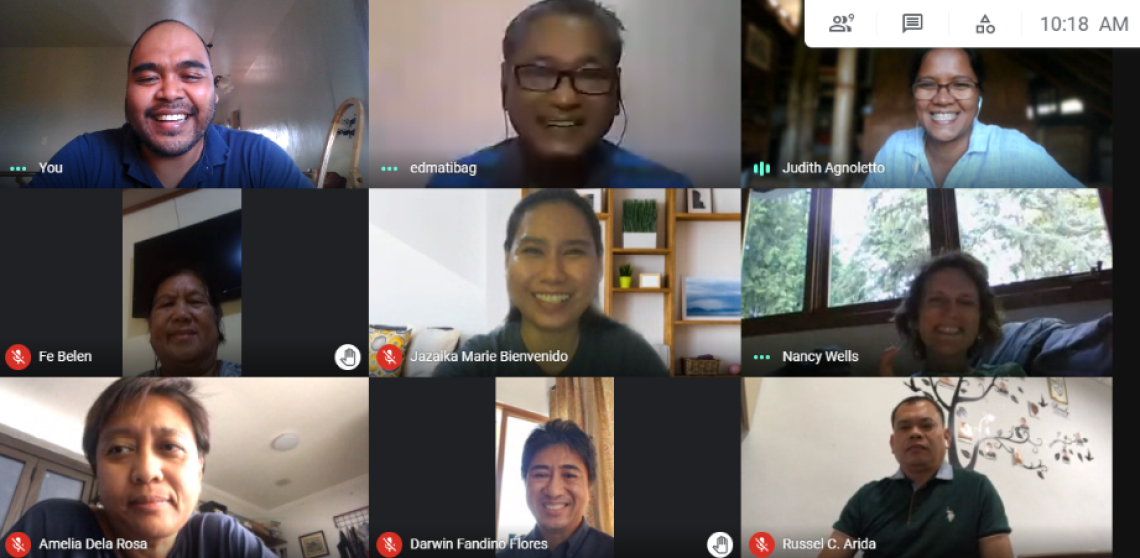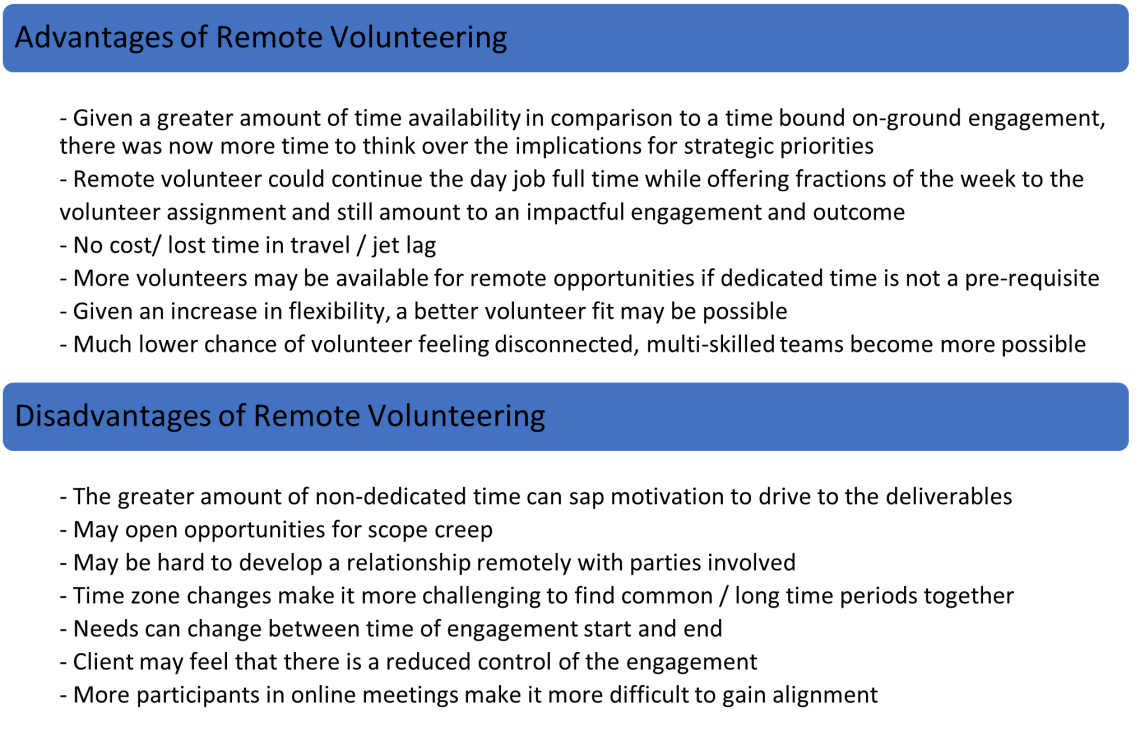Make your 2X MATCHED gift today!
This week only: Every $1 will be matched with $2 to enable women worldwide.
This week only: Every $1 will be matched with $2 to enable women worldwide.
Posted on 07/16/2021

The year 2020 provided an unforeseen opportunity for Grameen Foundation to validate its own program delivery risk mitigation plans. The Farmer-to-Farmer COCOS team in the Philippines had spent several years building volunteer engagements with expectations of tightly scoped deliverables which were to be executed quickly. Engagements were time-boxed to limit the full time on site hours needed by the Farmer-to-Farmer volunteer and the corresponding costs that included flights, housing, food and transportation on site. When COVID-19 blocked travel worldwide, how would a typical on-ground volunteer model re-invent itself to continue to serve the rural community? Having volunteered with both Grameen Foundation’s volunteer program, the Bankers without Borders program and the USAID Farmer-to-Farmer volunteer initiative in pre-pandemic Kenya, I was familiar with the volunteering model and wondered how it would be possible to pause, then restart the program during COVID-19 lockdowns.
The Farmer-to-Farmer COCOS team implemented a new framework where a local volunteer would be engaged as the “boots on the ground” role and would work in concert with a US remote volunteer. Both volunteers would be guided in the experimental engagement by the local Farmer-to-Farmer country team. I was offered the unique opportunity to volunteer remotely from my home in the US to support a hosting organization in the Philippines. I was paired with a local volunteer, Jazaika Marie Bienvenido (Jaz). I looked forward to being able to contribute to the success of a cooperative, remotely for a longer period of time than I would have had available had I travelled to the Philippines.
Our task was to support ALACCO (Alaminos Laguna Consumer Cooperative), a Filipino farming and consumer cooperative working to vitalize the municipal marketplace in the rural community. Specifically, our directive was to review ALACCOS organizational structure and their business model to identify issues with the cooperative’s long-term sustainability. We realized that we needed to interview their members to determine how ALACCO’s services were perceived. While I brought skills around the process and approach, Jaz was invaluable in directing me towards the issues that were most valuable to the local community. This was a situation where the combined value between us far exceeded what either of us could have individually achieved. During the course of the assignment, different communication strategies such as virtual interviews and meetings, as well as on-site interviews were implemented to capture the necessary information, while minimizing health risks associated with COVID-19.
Our project focus centered on a classic divergence between a cooperative’s strategic energies and management of the day-to-day functions. Without ongoing attention to value-added activities and relationship management, interest in the cooperative had waned and its future was uncertain. Our recommendations were to separate the strategic leadership from the management functions and ensure both were getting ample attention, most especially the lynch-pin communications management function.
In the span of my engagement with ALACCO, I realized that remote volunteering opportunities brought with it great advantages but also some real challenges.
Philippine standard time (PHST) is a full 15 hours ahead of my local Pacific time (PT) on the US West Coast. However, everyone involved in the project showed great flexibility around the scheduling of online meetings. Jaz conducted interviews during the weekdays and we found times during my evenings to discuss results. While Cooperative members were invited to many of the online meetings, most of the attendees were only the cooperative’s leadership. Additionally, when on-site interviews were conducted, many scheduled farm visits were unable to be performed due to a successive onslaught of typhoons in the Philippines as well as strict lockdowns.
Summarizing the advantages and challenges we faced:

The experience I had with ALACCO emphasized the importance of a tightly managed engagement even as we enjoyed a flexible end date. Given the time available, I had the opportunity to develop a position paper that was probably more researched and verbose than a typical deliverable and also offered a template for others to use in similar engagements. Personally, I developed a great relationship with folks a world away, from the local volunteer expert to the Cooperative staff and the Grameen Foundation Farmer-to-Farmer team, and sometimes felt that I was right there with them all. I feel a great personal reward in this work and I would absolutely volunteer remotely again.